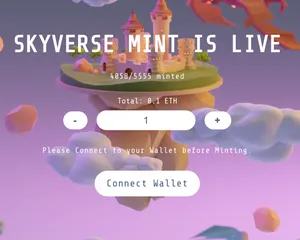Reception to the project was swift and overwhelmingly negative. Even the biggest Archie fans who already populated the existing Archie Comics Discord (which saw the addition of crypto channels on the day of the announcement) seemed largely unhappy with the news, and a plan to migrate to their own server free from the NFT and crypto chat was quickly hatched.
Archie Comics announces "Archiverse" NFT project to overwhelmingly negative reception
Influencer "The Real Tarzann" (aka Mike Holston) rug pulls NFT project to the tune of $700,000
The project ultimately minted only 3,179 of the 5,500 planned NFTs, but at 0.068 ETH a pop this still brought in 216 ETH (just under $700,000). The project quickly reduced the supply to avoid the appearance of a lukewarm mint. The NFTs themselves are all illustrations of men wearing various animal heads as headdresses — an odd choice for an animal conservation project.
In November 2021, much of the team suddenly disappeared and stopped posting to Instagram or Twitter. One mod in the Discord has remained positive for months since the apparent rug pull, urging the remaining community members to remain positive. In March 2022, the mod wrote, "I need a huge favor this week from everyone to not spam the accounts of NFT.com guys and Tarzan, it is EXTREMELY IMPORTANT that stops if we want this to comeback, hopefully huge news to follow this week." No such news appears to have come.
Bug discovered in popular Rarible platform: NFTs could execute malicious JavaScript
The vulnerability was discovered after Taiwanese singer Jay Chou had a Bored Ape NFT stolen in April, prompting the researchers to look into the details of the attack. After the researchers responsibly disclosed their findings to Rarible, Rarible implemented a fix. Rarible removed the ability for users to upload SVG files to patch the vulnerability; it's not clear if they intend to restore that functionality.
Authorities link Axie Infinity hack to North Korean Lazarus hacking group
- "Community Alert: Ronin Validators Compromised", Ronin Newsletter
- U.S. Department of Treasury announcement showing the sanctioned wallet address
- Attacker wallet on Etherscan
RCMP says more than $2 million has been lost to crypto scams in Richmond, B.C. since January
Shareholders file a class-action suit against Coinbase over deceptively positive statements
Fake SkyVerse project draws in more than $150,000
NFT collector gets $280 top bid for the Jack Dorsey tweet NFT he bought for $2.9 million last year
Ethereum transition to proof-of-stake delayed again, as is tradition
The project has been delayed so many times that it has become a bit of a running joke — crypto critics regularly describe the Ethereum PoS migration as something that has been "only six months away" for several years now. Meanwhile, it has proven a useful way for Ethereum fans to dismiss the valid concerns about the enormous energy expenditure of their preferred blockchain, as though enormous emissions and e-waste are somehow a non-issue if there is some vague plan at some perpetually-in-the-future point to move away from them.
Anyway, Ethereum developers have projected new levels of optimism lately, with several of them describing "the merge" as imminent — I believe a June timeframe was the popular estimate. Unfortunately, this appears to have been just as unachievable as the prior "deadlines", with an Ethereum core developer stating it was now looking like it wouldn't happen until some time this autumn. This is particularly brutal timing, given Nilay Patel's interview yesterday with a16z's Chris Dixon, where he confidently pointed to an early July "merge" date (only to become substantially less confident when pressed on specifics). Anyway, see you this fall for the next hype cycle — between now and then, Ethereum will have again consumed energy comparable to the amounts used annually by some small countries, for little if any useful purpose.
- Tweet by Tim Beiko
- "Ethereum energy consumption", Ethereum.org
Texas Securities Commissioner issues emergency order to stop a metaverse casino
In the order, the Commissioner alleged that the project was "leveraging interest in metaverses to perpetrate a high-tech fraudulent securities offering", and had been falsely claiming to their followers that securities laws don't apply to NFTs. "They are misleading purchasers by claiming they can simply avoid securities regulation by implementing illusory features or use different terminology," the Commissioner's announcement said.









